
Let’s talk some more about Rare Copland. The playlist below consists mainly of relatively minor works that Aaron Copland composed throughout his career. You are almost certainly never going to hear most of them on the radio and highly unlikely to see them performed in a concert venue near you.
Some of these rare Copland pieces sound like Copland and others will be nothing like what you are expecting. A few will seem a bit derivative or like homages to other composers. There are quite a few that reflect Copland’s Jewish heritage. This is an Americana free zone. In fact, on the contrary, there are some compositions that are so arty that even I struggle!
I have largely stuck to works that have one or two recordings only. Anything with over three recordings does not make the playlist! Perhaps those pieces will make a separate blog in the future? I have also avoided soundtracks, incidental music, any transcriptions, the ballets Hear Ye! Hear Ye! and Grohg and the operas. I will cover all of these separately.
I hope you enjoy these rare Copland pieces – I think there are some absolute gems amongst them.
Capriccio for violin & piano (1916)
This is a lovely, lively miniature that brims with Copland’s inner Klezmer! He was only 16 when he wrote this. There’s only one recording of this delightful little gem – Adam Summerhayes (violin) and Catherine Summerhayes (piano).
Sonnet 1 for piano (1918)
A miniature that’s easy to dismiss as European inspired derivative juvenilia but there is definite charm and certainly a taste of the many wistful blues to come. Only one recording – Yvar Mikhashoff.
Poème for cello & piano (1918)
Haunting early work showing Copland’s French influences: Debussy and Faure. Full of yearning, it sounds like a forlorn love letter in musical form.
Lament for cello and piano (1919)
Achingly beautiful piece using a traditional Hebrew melody. Two recordings: Terry King (violin) and Shizue Sano (piano) and Adam Summerhayes (violin) and Catherine Summerhayes (piano).
Sonnet II for piano (1919)
Remarkably assured early work. I like to listen to all three sonnets together as they evidence Copland’s lifetime love of Litzt and the influence of Debussy, Faure & Ravel. Two recordings. Listen to both as Roman Salvatore’s manages to play the 27 bars in a minute less than Yvar Mikhashoff!
Prelude No 1 for violin and piano (1919)
A student work in which Copland attempts a Liszt like tone poem from the poetry of Witter Bynner. It’s an interesting development piece. One recording by Paul Posnak (piano) & Peter Zazofsky (violin).
24 Preludes Op 28 no 4 in E Minor and no 6 in B Minor – Frederic Chopin arranged for cello and piano by Aaron Copland (1919)
For me this is like when you visit an exhibition of a famous painter – You see youthful works which are unlike their mature art but show that they can paint like a great master.. Gorgeous melancholia! Listen to Terry King (violin) and Shizue Sano (piano).
Sonnet III for piano (1920)
A student work before Copland left Brooklyn for Paris – sincere, poignant & romantic. Familiar Copland themes but with a very European panorama. The only recording is a lovely version by Yvar Mikhashoff.
Prelude No 2 for violin and piano (1921)
An early work from that seems a bit forgettable at first but there’s a surprising depth and delicacy revealed with further listens. Check out Adam and Catherine Summerhayes.
Piano Sonata in G Major (1921)
- Allegro maestoso
- Andante cantabile
- Allegro vivave
Copland’s most expansive early work. It’s hard to think of a piece that sounds less like the mature Copland. It was a graduation piece for Rubin Goldmark so no doubt went down very well. Romantic in the extreme – it’s straight out of a European salon! Premiered on 21 May 1995. Check out Roman Salvatore on Cedille Records.
An Immorality for soprano chorus & piano (1925)
A setting of a poem by Ezra Pound. “Sing we for love and idleness, Naught else is worth the having.” Described by fellow composer Julia Smith as “a hot Jazz madrigal”! I think my favoured recording is the Camerata Singers.
The House on a Hill for women’s chorus (1925)
A setting of a poem by Edwin Arlington Robinson. “They are all gone away, The House is shut and still, There is nothing more to say”. Sombre stuff! Ned Rorem also set this poem (whisper it – I think the Rorem one is my preferred version!)
Poet’s Song (1927)
A setting of the poem “In spite of everything” by EECummings. Somewhat inaccessible, this is Copland’s early experiment with serialism. Premiered the same day as Vocalise! I wonder what New Yorkers made of the concert? Two versions: Roberta Alexander and Roger Vignoles and Susan Chilcott and Iain Burnside.
Vocalise for high voice & piano (1928)
Ethel Luening gave the premiere in 1935. This is by some distance the most painful Copland composition I’ve heard! Do yourself a favour and look out the flute arrangement instead!
Of course, not all vocalise sounds like a miserable cat. You just can’t beat Edda Dell’Orso who sang on Ennio Morricone’s great Spaghetti western soundtracks. Check out Ecstasy of Gold:
Prelude for piano trio (1928)
Lots of Copland pieces have a convoluted history. This originally featured as the first movement of the Organ Symphony. It was also later arranged for Chamber Orchestra. Listen to Music at Copland House.
Elegies for violin and viola (1932)
This is a bit of a cheat. Until last month there was only two recordings but there is a new recording alongside Leonard Bernstein’s rediscovered Music for String Quartet which I feel is important to promote. This piece evokes feelings of being alone in a vast cosmic ocean not unlike the Ives’s Unanswered Question. Copland withdrew the 7 minute Elegies and used the first half to become Subjective from Statements.
Banu (We’ve come) for voice and piano (1938)
Copland’s rousing and spirited hora (chair dance) celebrating the release of yesterday’s poor and needy from distress. Only one recording of this ultra rare Copland: New Budapest Orpheum Society.
Jubilee Variation on a Theme by Eugene Goossens (1945)
More than a hint of the 3rd Symphony scherzo in this vibrant mini orchestral work. Only one recording to choose from (Cincinnati Pops and Erich Kunzel) but you can also watch the All Star Orchestra under Gerard Schwarz do all 11 variations by the following composers: Eugene Goossens, Aaron Copland, Deems Taylor, Howard Hanson, Walter Piston, William Schuman, Roy Harris , Anis Fuleihan, Bernard Rogers, Ernest Bloch and Paul Creston
Dirge in Woods for voice & piano (1954)
A setting of a poem by George Meredith that Copland dedicated to Nadia Boulanger in celebration of her 50 years of teaching. Less accessible art song using nature as metaphor of life and death. Listen to Lydia Easley & Enrico Maria Polimanti on Naxos.
Threnody I (In memoriam Igor Stravinsky) for flute and string trio (1972)
Copland pays homage to one of his biggest influences with a flute melody above a canonic ground in strings. Two recordings – Music from Copland House gets my nod.
Threnody II (In memoriam Beatrice Cunningham) for alto flute and string trio (1973)
The cellist Beatrice Cunningham was a personal friend. This piece is elegiac & somewhat autumnal. Listen to Fenwick Smith and the Boston Chamber Music.

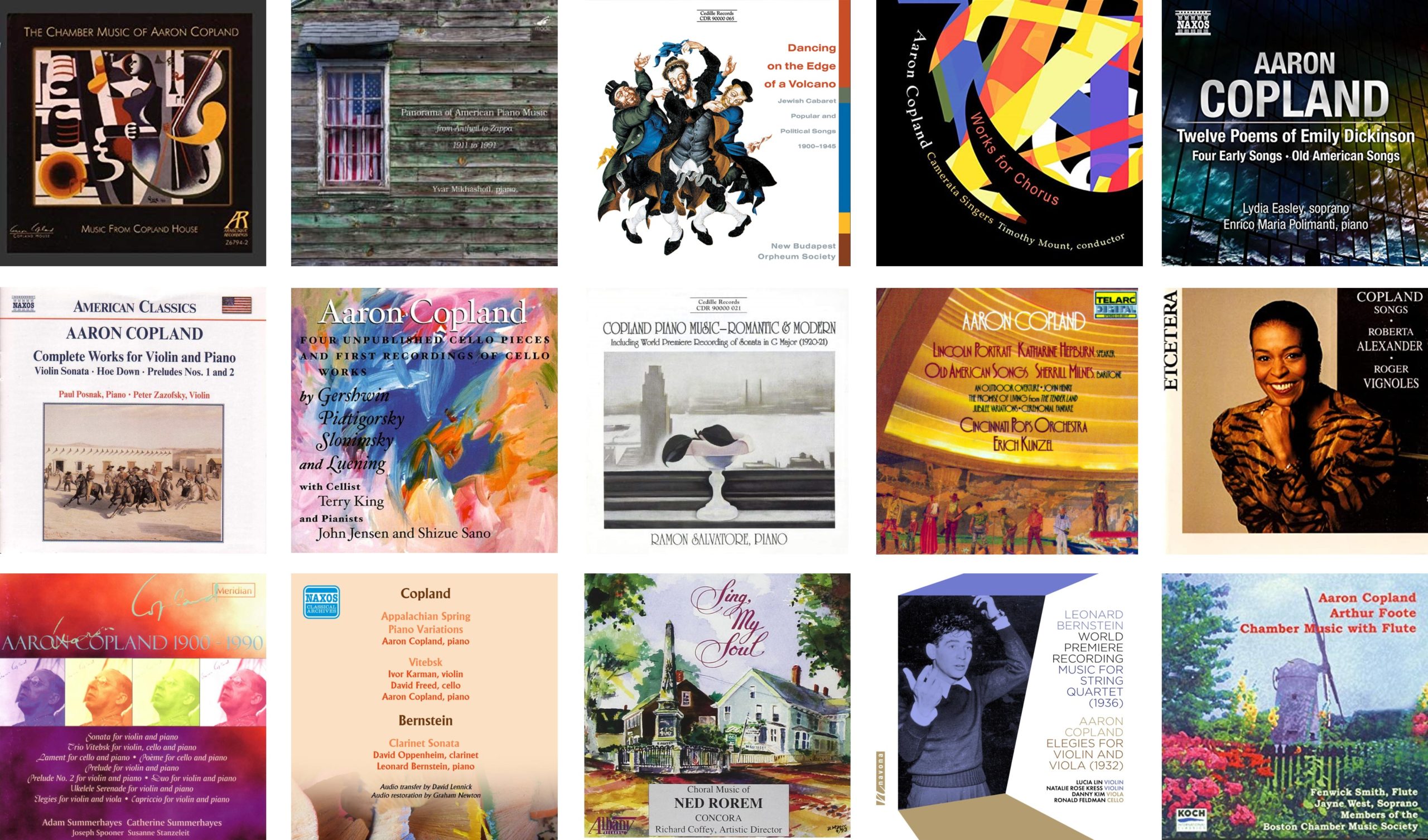
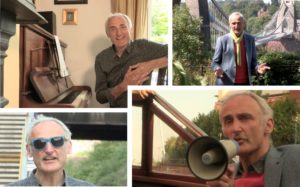
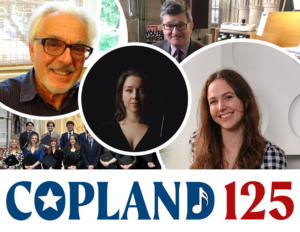
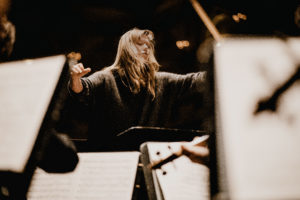
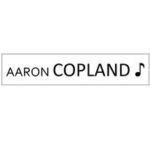




Blog Comments
Katharine Rawdon
18th December 2024 at 3:09 pm
So delighted to find this site! Copland- amazing music, even the “harder” works. He was helicoptered in from NYC to hear the Fellowship Orchestra play his 3rd Symphony under Bernstein, Tanglewood 1985. One very memorable moment for me as a flutist! Thanks very much, Kevin!
Cheers, Katharine Rawdon
Kevin Lindegaard
31st December 2024 at 11:31 am
Hi Katharine, Thanks for the feedback. Lovely to hear that I have readers in the US. Nice anecdote too. 2025 and 2026 are big years for Copland and US celebrations.I am hoping to be able to blog more in the coming year to help share and celebrate more of Copland’s amazing legacy.